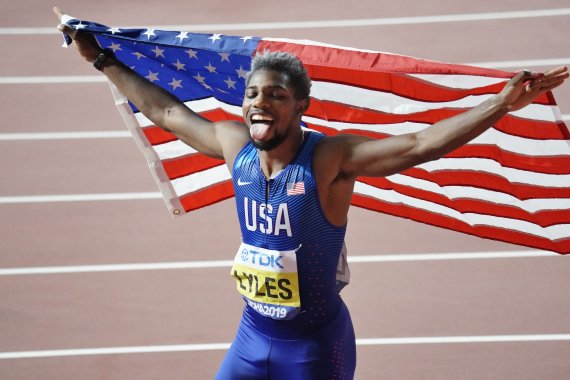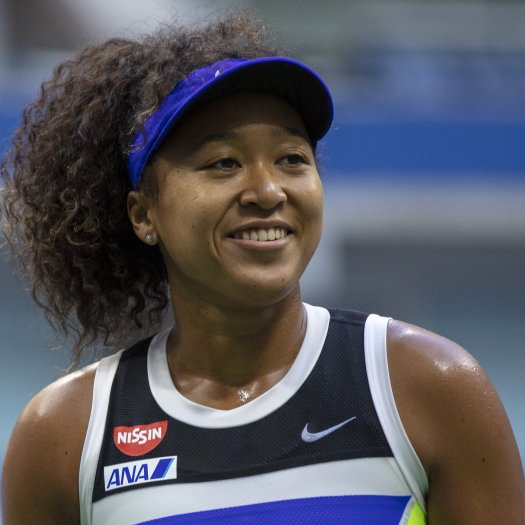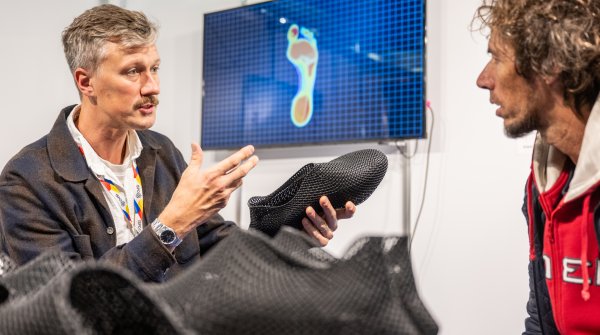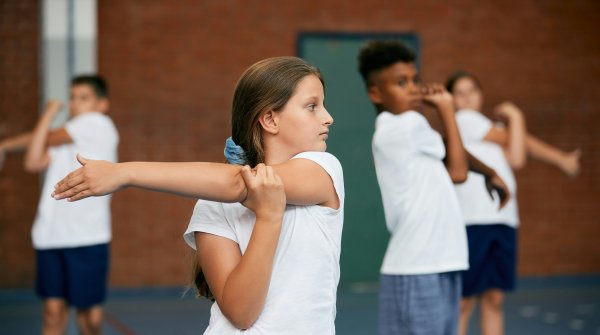Trigger warning: This article contains passages about depression, alcohol and drug abuse and bullying; even if you suffer from emetophobia, you should not read this text or should not read it alone. You can find information and help here.
SIMONE BILES is probably the best gymnast in history. But at the Olympic Games in Tokyo, the American showed just how unhealthy the pressure of expectation and stress can be: Surprisingly, Biles cancelled five of her targeted six competitions at short notice. The reason: anxiety. This was compounded by an unexpected death in the family. "I say mental health comes first. That's why sometimes it's okay to even skip the big competitions to focus on yourself. It shows how strong you really are as a competitor and a person instead of just fighting through it," the 26-year-old said at a press conference. Months after the Olympic Games, when Biles had ended her professional sports career and was on the road with a show tour, she admitted that she was "still scared of gymnastics". Professional help helped her: "It was a great relief for me to get the psychotherapy I needed, especially when I was on tour." Biles is now also Chief Impact Officer at the mental health app Cerebral. Due to her consistent engagement Simone Biles also made our list of 44 top female athletes, who change the world for the better.
MICHAEL PHELPS was deeply saddened to see Biles go. Seeing her broke his heart, said, the most successful Olympic starter of all time with 23 gold medals. The US swimmer was also in Tokyo, but for the first time not as a swimmer at the Olympic Games, but as a television expert. Phelps struggled with depression early on in his career. These were only ever made public indirectly - Phelps drove drunk, he was caught smoking pot. Phelps later admitted that he had suicidal thoughts. At the age of 30, he finally learned to talk. He told the Swiss newspaper "Blick" just before the end of Biles, "I want to encourage more people to talk about what they are going through. I admit it: it saved my life."
NAOMI OSAKA was a "game changer" in the eyes of Michael Phelps when it came to raising awareness of mental health problems. Japan's tennis superstar has spoken openly about her depression on social media. Osaka has also made no secret of her gnawing self-doubt in a documentary series on Netflix. In 2021, Osaka dropped out of the French Open as the world number 2 in women's tennis and made her mental health problems public. She has been suffering from depression since the US Open in 2018. The situation in Paris escalated because Osaka did not want to talk to the press - she accused the media of showing no consideration for the mental health of athletes. In 2022, Osaka burst into tears after an interjection from a spectator in Indian Wells. With the help of a psychotherapist, however, Osaka said she came out of the incident stronger: "She taught me strategies for such incidents and I realize how helpful they are. I'm glad that the people around me advised me to take this step." Naomi Osaka also made our list of 44 top female athletes who change the world for the better.

NOAH LYLES is one of the best sprinters in the world, became world champion in the 200 meters in 2022 and won bronze at the Olympic Games in Tokyo. Almost more admirable than the US American's sporting success is his commitment to combating the taboo surrounding mental health problems. In 2020, Lyles wrote on Twitter: "I recently decided to undergo treatment with antidepressants. It was one of the best decisions I've made in a long time. Since then, I've been able to think without the dark undertone in my head that it's all meaningless anyway." Lyles later explained his tweet, saying he wanted to break the stigma that drug treatment was "only for people who are crazy." Lyles was diagnosed with depression in 2020. "When we went into lockdown, the Black Lives Matter movement took off and it felt like every day you saw another young person die on the street or a school shooting, I felt more and more powerless and helpless." Together with his younger brother, Lyles has since founded the Lyles Brothers Sports Foundation, which supports young athletes financially and provides advice on mental health issues, stress management and anti-bullying.
JACKIE BAUMANN might have competed for Germany in the 400-metre hurdles at the Tokyo Olympics. Baumann was German champion in the discipline in 2015 and 2016, and in 2020 she was considered the favourite at the national championships at the time. However, at just 24 years of age, the daughter of 5000-meter Olympic champion Dieter Baumann ended her career just a few days before the championships. She cited mental reasons for her decision, saying that she had not been able to enjoy competitions and that they had put a strain on her and had a negative impact on her mental health. In the end, she was no longer prepared to withstand the pressure, she told Deutschlandfunk radio at the time about her surprising move. "At some point, you can't get out of the spiral, you're trapped in your own head." Insomnia, rapid irritability, retching and even vomiting were her symptoms before competitions. The problems became severe around her participation in the 2016 Olympic Games in Rio - Baumann avoided a repeat of this pressure in Tokyo by retiring.
MARK CAVENDISH is an example of many professional cyclists who reach or exceed the limits of their mental resilience under the pressure of having to win. The Brit is one of the biggest names in cycling. He has won a number of stages in the Tour de France and the Giro d'Italia. He is one of the few names that also means something to a wider public beyond cycling fans. In 2020, he revealed that he has mental as well as physical problems. "It wasn't just my physical health that took a hit in recent years. I've battled quite hard with depression during that time," the now 1985-born rider told the British newspaper "The Times". However, Cavendish got back on his feet and even won his 34th stage win at the 2021 Tour, putting him on a par with the legend Eddy Merckx. However, further tests await Cavendish - after the end of his career, a number of professional cyclists fell into psychological problems and attracted attention through drug or alcohol abuse. Former Tour winner Jan Ullrich, for example, who was involved in one of the biggest doping scandals, fell into a burnout.
PER MERTESACKER is probably the most prominent German footballer to make public the psychological problems that followed the pressure to perform. Shortly after the end of his career, the 2014 World Cup winner told Der Spiegel in 2018 how the pressure to perform was literally getting to him. He said he reacted with nausea and diarrhoea before every game - "as if what comes next, symbolically speaking, just makes you want to vomit". He was aware of his privileges. But "at some point you realize that everything is a burden, physically and mentally. That it's no longer about having fun, but that you have to deliver, no ifs, ands or buts." He didn't see injuries that forced him to sit out as a drama, but as a relief. "Because it's the only way to get a legitimate break, to get out of the grind," said the former Werder Bremen and Arsenal London defender.
BEAR GRYLLS published his book "Mind Fuel - Simple Ways to Build Mental Resilience Every Day" in 2022. As the adventurer has already overcome various extraordinarily dangerous obstacles, you might think that mental health problems are a foreign concept to him. Susanna Reid, presenter of Good Morning Britain, even described the adventurer as "rock solid".
But even he wasn't spared: Bear Grylls opened up, talking about his problems with self-confidence and self-doubt as well as fear, setting an example for supposedly strong men.
FELIX NEUREUTHER is one of the most successful and popular winter sports athletes in Germany. In addition to his sporting successes, the former skier scores above all with his humorous, authentic and likeable personality. What makes him even more of a role model? His"Beweg dich schlau!" initiative in collaboration with the Technical University of Munich, which he uses to teach children and young people about the importance of sport and physical and mental health.
LEBRON JAMES did not have an easy start in life and yet worked his way up to become a successful basketball player - the American Dream. In addition to his commitment to social and political justice, mental health is also close to his heart. In an interview with children, he says: "Sometimes it's okay to hold something back, but if you hold it back too long, it can become overwhelming." He tells them that you have to talk about pressure and difficult things in order to feel better. That's why he also wrote the children's book "I am more than" with the message that children should believe in themselves.
LINDSEY VONN, winter sports hero and Olympic gold medal winner, has suffered from depression since her teenage years, even though she always felt there was nothing wrong with her - today she says that although she has depression, there is still nothing wrong with her. Especially in sports, mental health problems are stigmatized, as it is seemingly impossible to be strong in sports and still have weaknesses at the same time. And that's why she speaks out. Lindsey talks publicly about her illness and her road to recovery to normalize depression and other mental illnesses. Lindsey Vonn also made our list of 44 top female athletes who change the world for the better.
ROGER FEDERER, 20-time Grand Slam winner, encourages young tennis players that mental health problems are normal. "You know it, travelling, training, jet lag. Nobody can say that you're tired today. Because that looks like you're weak. That's why players sometimes have mental problems, because you're always supposed to show strength." He agrees with his tennis colleagues with this statement, but also says that dealing with mental problems in the tennis scene has become more open in recent years.
SERENA WILLIAMS played tennis in the top leagues for years and won all the titles. But when she retired, she had to learn to set boundaries and switch off after the pressure and constant anxiety that comes with a career in tennis. She has also publicly shared the state of her mental health and the tools she uses to deal with it and supports Selena Gomez' "Wondermind" initiative. She also made our list for 44 top female athletes who change the world for the better.
- ISPO awards
- Mountain sports
- Bike
- Design
- Retail
- Fitness
- Health
- ISPO Job Market
- ISPO Munich
- ISPO Shanghai
- Running
- Brands
- Sustainability
- Olympia
- OutDoor
- Promotion
- Sports Business
- ISPO Textrends
- Triathlon
- Water sports
- Winter sports
- eSports
- SportsTech
- OutDoor by ISPO
- Heroes
- Transformation
- Sport Fashion
- Urban Culture
- Challenges of a CEO
- Trade fairs
- Sports
- Find the Balance
- Product reviews
- Newsletter Exclusive Area
- Magazine








